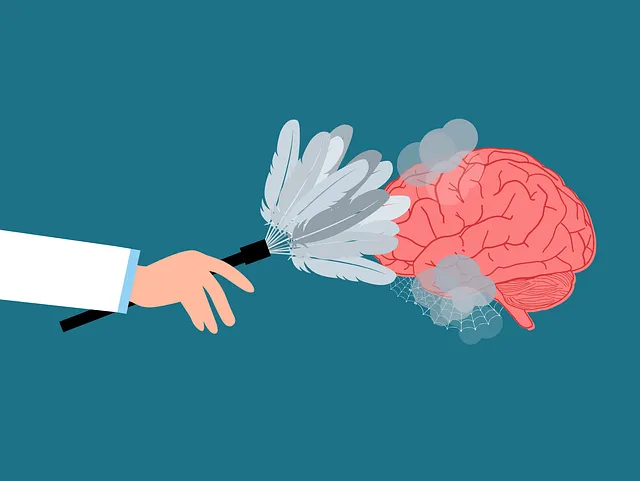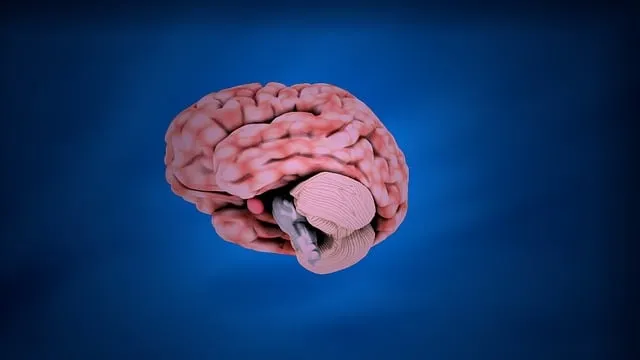Crisis Intervention Teams (CITs), supported by organizations like Kaiser Permanente behavioral health services Lakewood, swiftly respond to emotional crises, offering tailored care through a collaborative of mental health experts, paramedics, police, and community workers. Their effectiveness relies on continuous skill enhancement via training programs like Stress Management Workshops and Mental Wellness Coaching, as well as Community Outreach Program Implementations. Kaiser Permanente's training programs, emphasizing Resilience Building and emotional intelligence (EI), equip participants with coping skills to manage their emotions and others' feelings, de-escalate tense situations, and reduce the impact of trauma. These multidisciplinary teams promote mental health policy analysis and advocacy, creating a safer, more supportive healthcare environment.
“Crisis intervention teams (CITs) play a vital role in providing effective behavioral health support during emergencies. This article explores the critical function of these teams, with a particular focus on Kaiser Permanente Behavioral Health Services Lakewood’s training programs. We delve into the essential components of comprehensive CIT training courses, highlighting their implementation and impact. By examining real-world examples, we emphasize how structured training prepares teams to navigate complex crises, ensuring better patient outcomes.”
- Understanding Crisis Intervention Teams: A Key to Effective Behavioral Health Support
- Kaiser Permanente Behavioral Health Services Lakewood: An Overview of Their Training Programs
- Essential Components of a Comprehensive Crisis Intervention Team Training Course
- Implementation and Impact: Preparing Teams to Navigate Complex Behavioral Health Crises
Understanding Crisis Intervention Teams: A Key to Effective Behavioral Health Support

Crisis Intervention Teams (CITs) are a crucial component of effective behavioral health support systems, especially in communities like Lakewood where organizations such as Kaiser Permanente behavioral health services play a vital role. CITs are specialized teams composed of trained professionals who respond to individuals experiencing severe emotional crises or distressing situations. Their primary goal is to provide immediate and appropriate assistance, de-escalate the situation, and connect the individual with long-term support resources.
These teams typically include mental health professionals, paramedics, police officers, and other community outreach workers. By integrating diverse skill sets within a collaborative framework, CITs offer comprehensive care tailored to the unique needs of each crisis scenario. Furthermore, regular training programs, such as Stress Management Workshops and Mental Wellness Coaching Programs, are essential for continuous development and enhancement of these team members’ skills. Community Outreach Program Implementation strategies also contribute to expanding the reach and effectiveness of CITs in addressing behavioral health challenges at a grassroots level.
Kaiser Permanente Behavioral Health Services Lakewood: An Overview of Their Training Programs

Kaiser Permanente Behavioral Health Services Lakewood offers a range of comprehensive training programs designed to equip individuals with the skills needed for crisis intervention. Their offerings focus on both personal growth and effective support strategies, reflecting their commitment to holistic well-being. One standout program is their Resilience Building initiative, which equips participants with tools to navigate challenging situations, fostering mental agility and emotional fortitude.
These sessions delve into various aspects of trauma support services, acknowledging the profound impact of traumatic events on individuals’ lives. By addressing these issues head-on, the program aims to dismantle the Mental Illness Stigma Reduction Efforts, creating a more inclusive and supportive environment for all. Through interactive workshops, role-playing scenarios, and peer learning, participants gain valuable insights into crisis intervention techniques, enhancing their capacity to offer effective support in their personal and professional spheres.
Essential Components of a Comprehensive Crisis Intervention Team Training Course

A comprehensive crisis intervention team training course, such as those offered by Kaiser Permanente behavioral health services Lakewood, should incorporate several essential components to ensure effectiveness in handling psychological crises. Firstly, the program must equip participants with robust emotional intelligence (EI) skills. This includes recognizing and managing one’s emotions, as well as understanding and empathizing with others’ feelings. EI is crucial for building rapport and de-escalating tense situations.
Additionally, coping skills development is vital. Training should focus on teaching practical strategies to help individuals navigate stress, anxiety, or distressing emotions. This includes techniques for mood management, such as mindfulness, breathing exercises, and cognitive reframing. By integrating these skills, crisis intervention teams can better support individuals in moments of vulnerability, fostering a sense of security and stability.
Implementation and Impact: Preparing Teams to Navigate Complex Behavioral Health Crises

Effective crisis intervention team training programs are instrumental in equipping healthcare professionals to handle complex behavioral health crises. These teams, often composed of multidisciplinary members from Kaiser Permanente behavioral health services Lakewood, play a pivotal role in de-escalating high-risk situations and providing timely, effective interventions. The implementation of specialized training goes beyond mere knowledge transfer; it empowers individuals with practical skills in emotional intelligence, stress management, and evidence-based crisis intervention techniques.
By fostering a culture of mental health policy analysis and advocacy within these teams, the programs ensure that members are not only prepared for immediate crisis response but also advocate for systemic changes. This holistic approach enhances the impact of training, enabling teams to navigate the intricate landscape of behavioral health crises with enhanced empathy, resilience, and strategic thinking. Such initiatives contribute significantly to improving patient outcomes and creating a safer, more supportive environment within healthcare settings.
Crisis intervention team (CIT) training is a vital component in enhancing behavioral health support, as highlighted by programs like Kaiser Permanente Behavioral Health Services Lakewood. Their comprehensive training courses equip teams with essential skills to navigate complex crises effectively. By focusing on key components such as cultural sensitivity and evidence-based practices, these programs ensure that CIT members are prepared to provide timely and compassionate care. The impact of this training is profound, fostering better outcomes for individuals in crisis and strengthening the overall behavioral health landscape.






